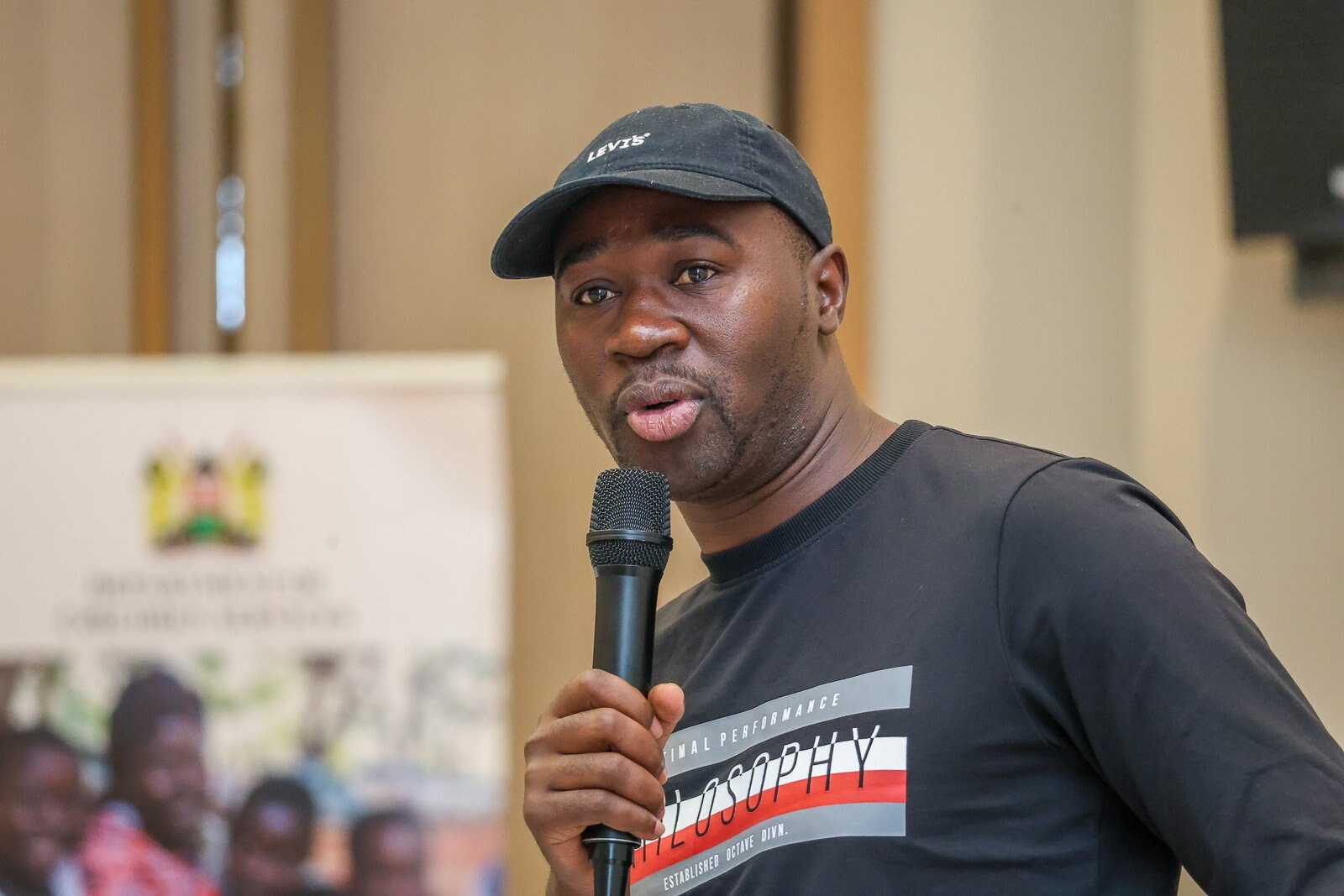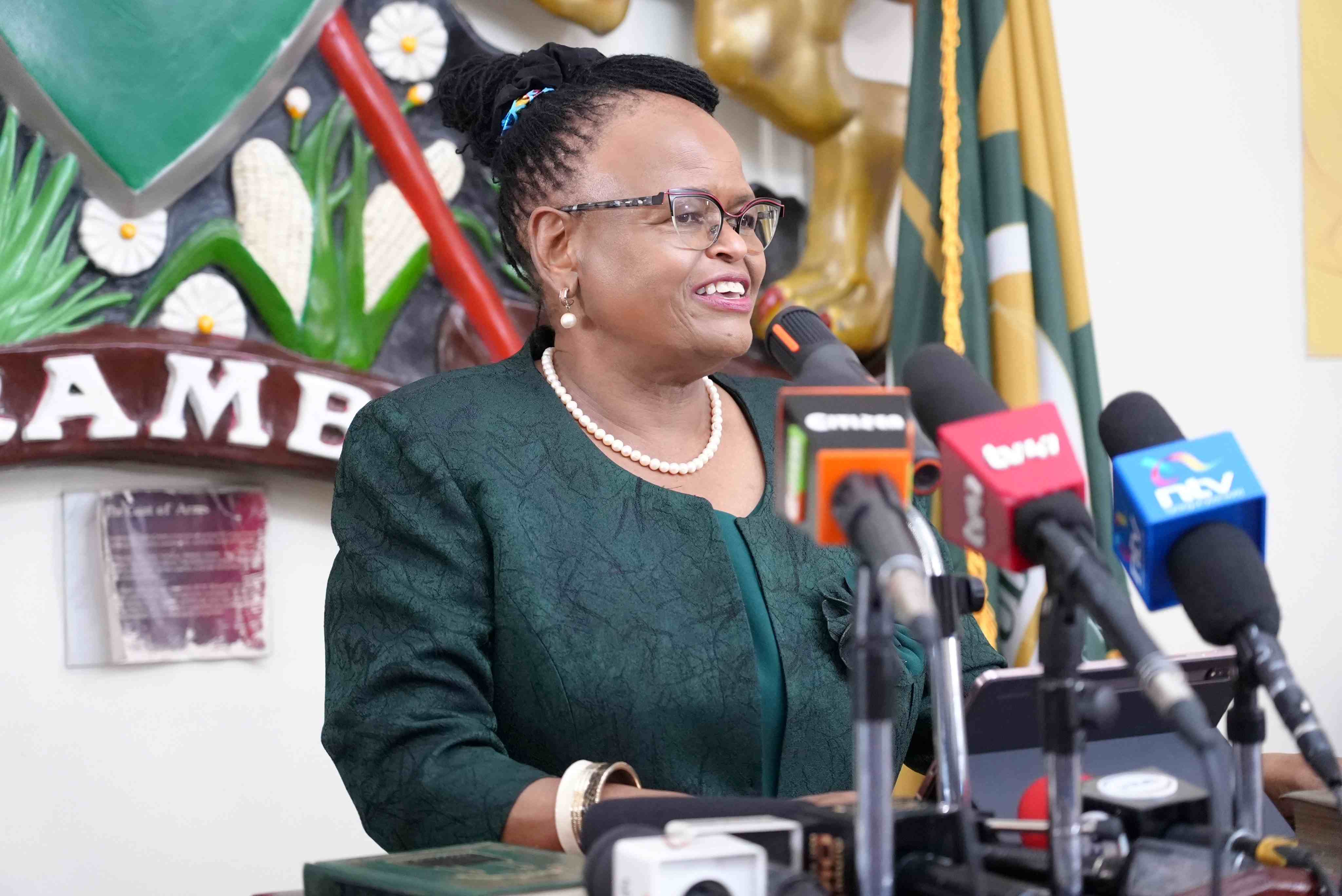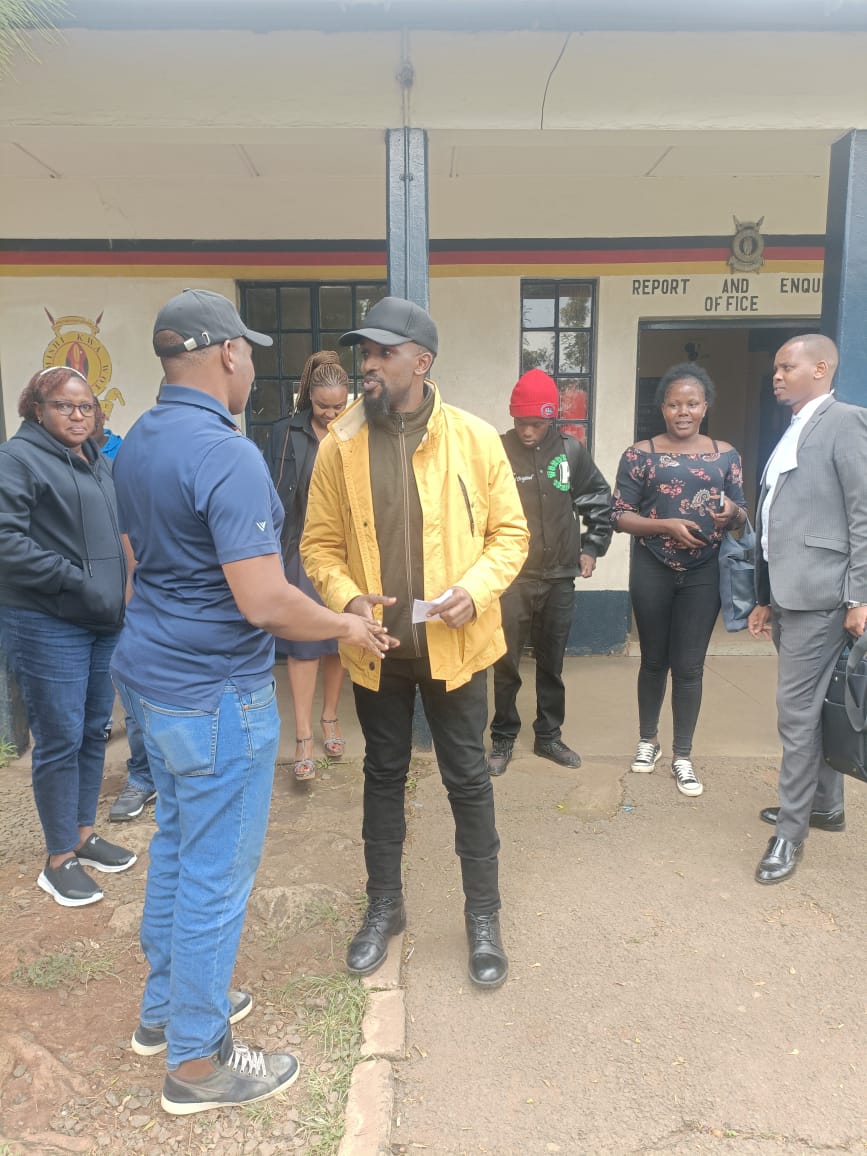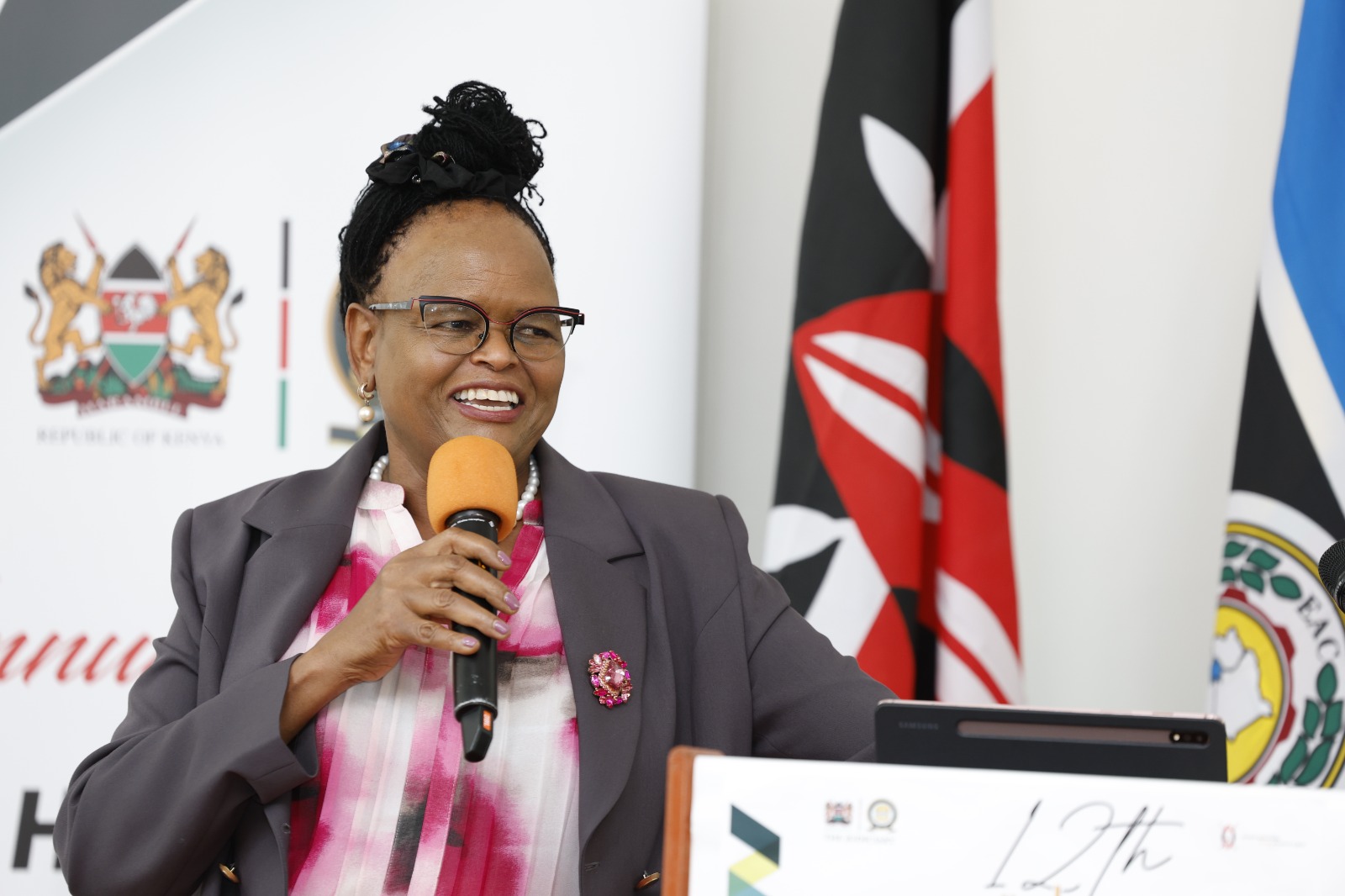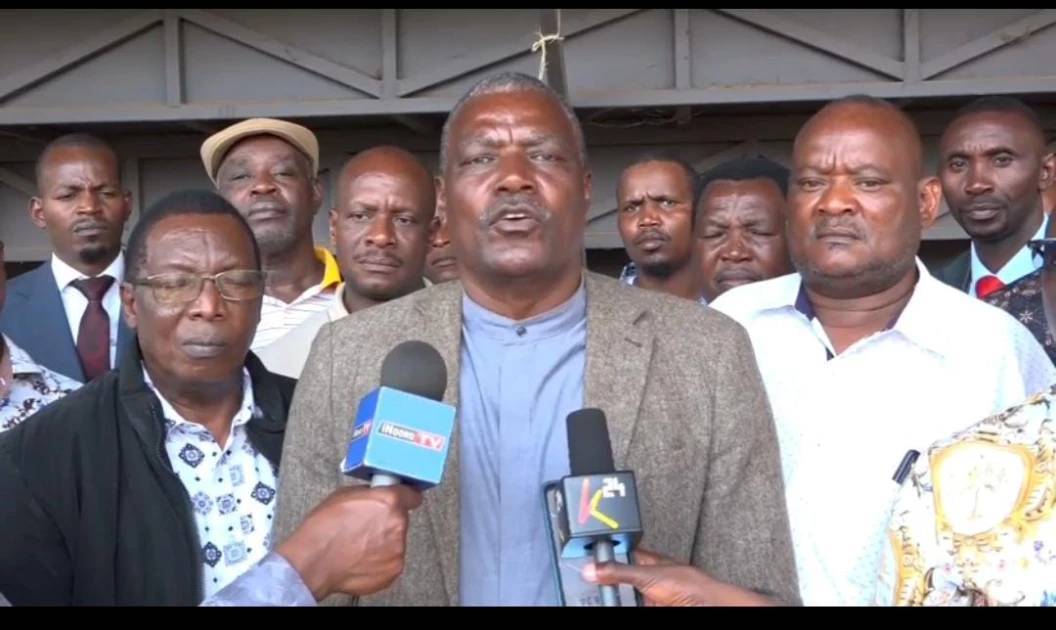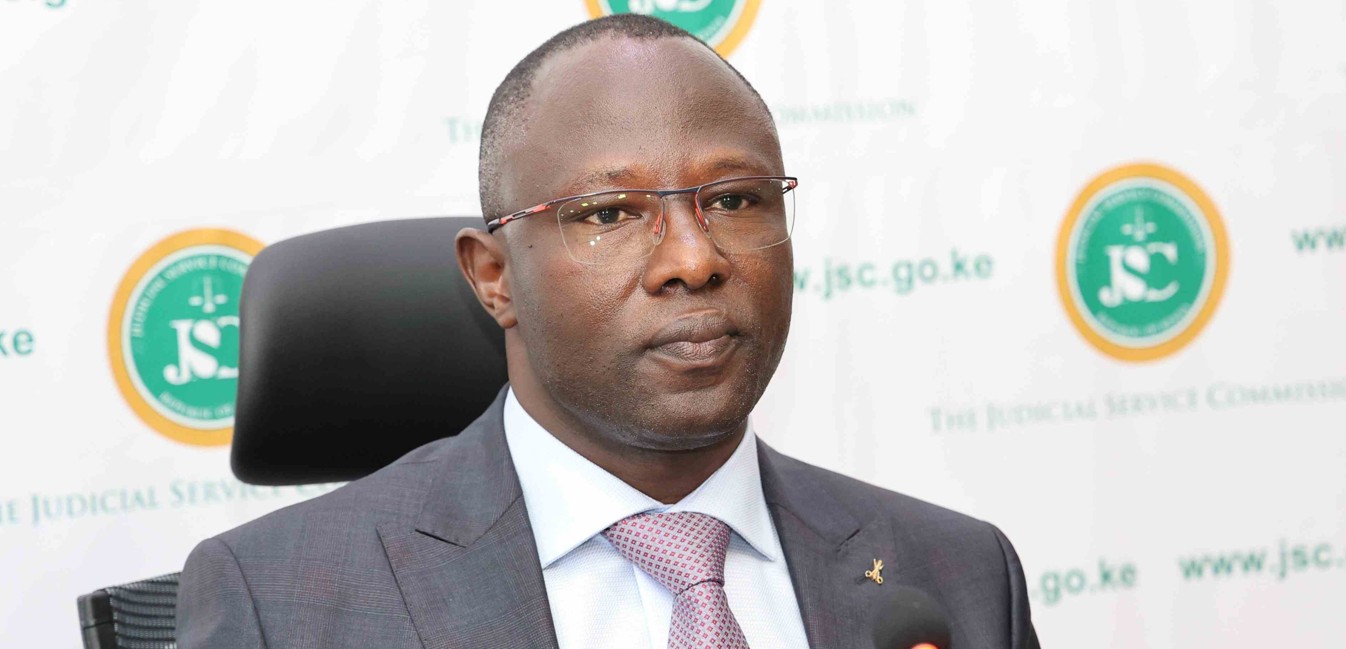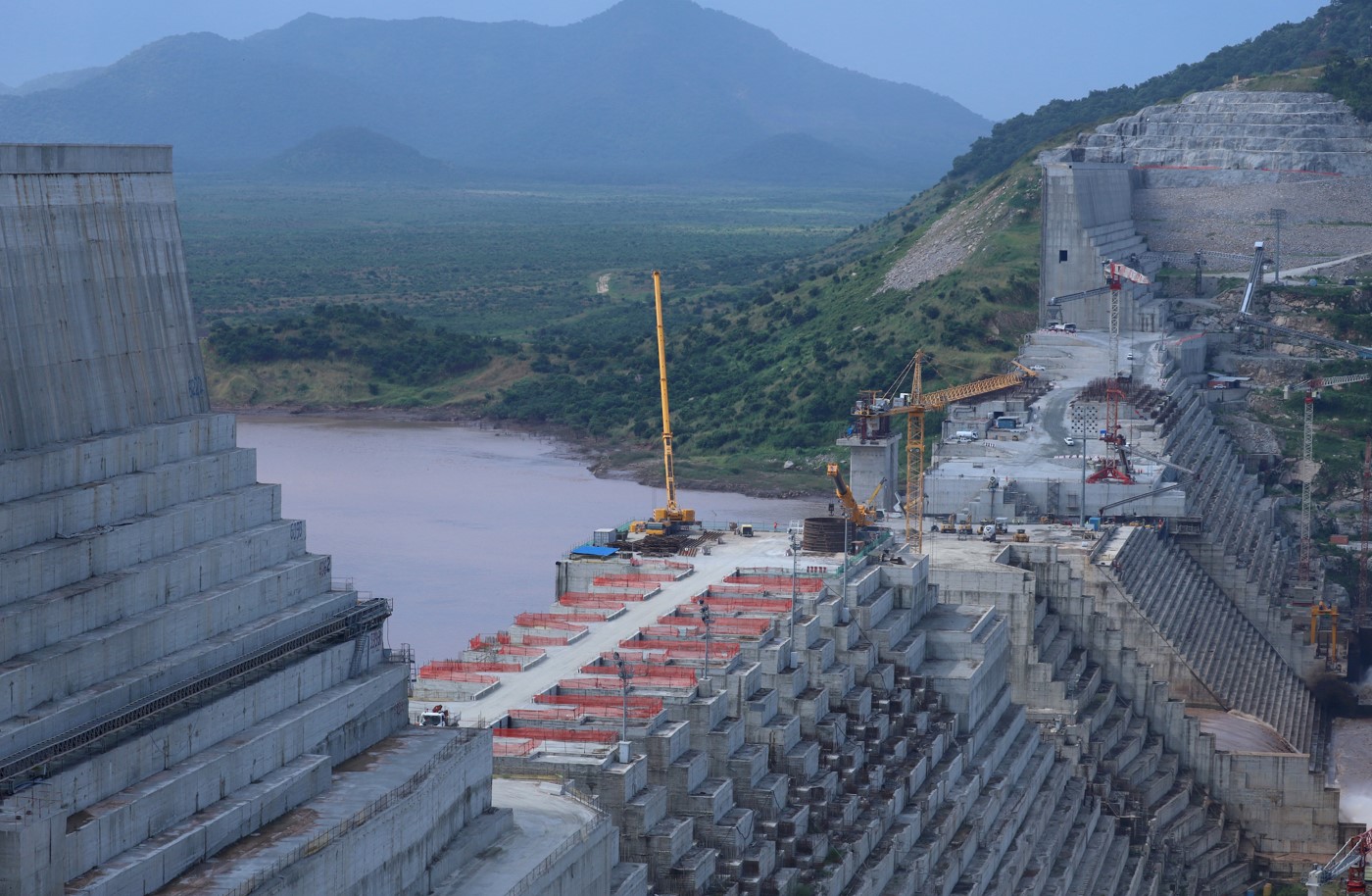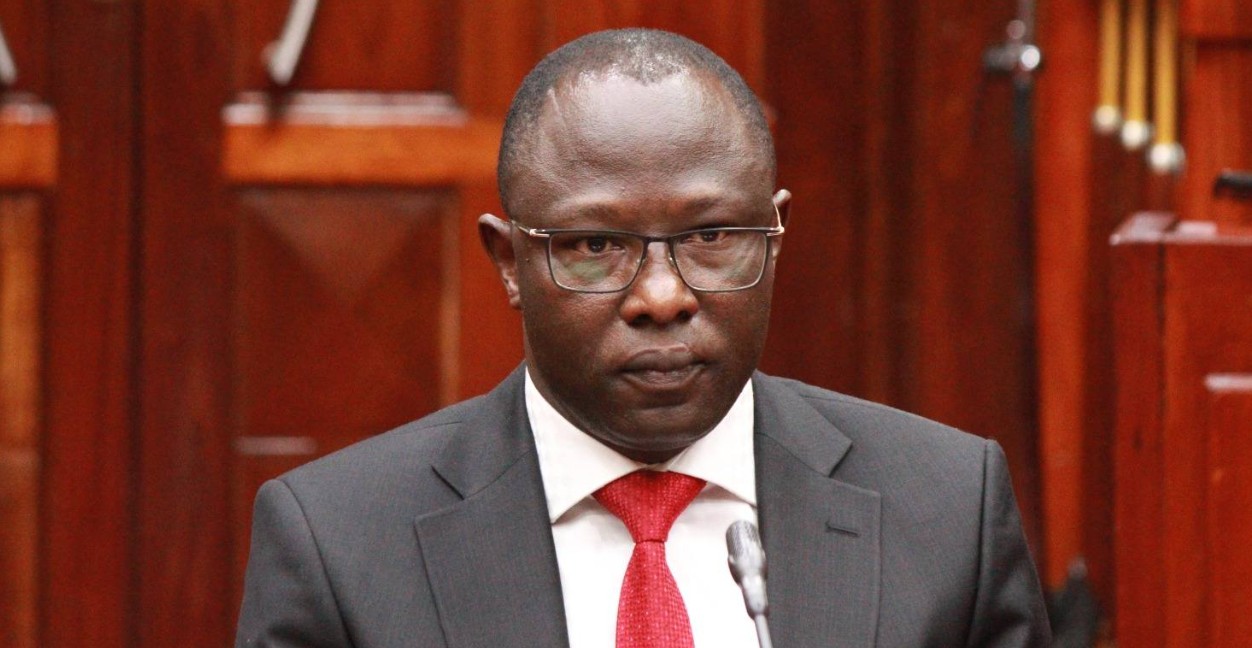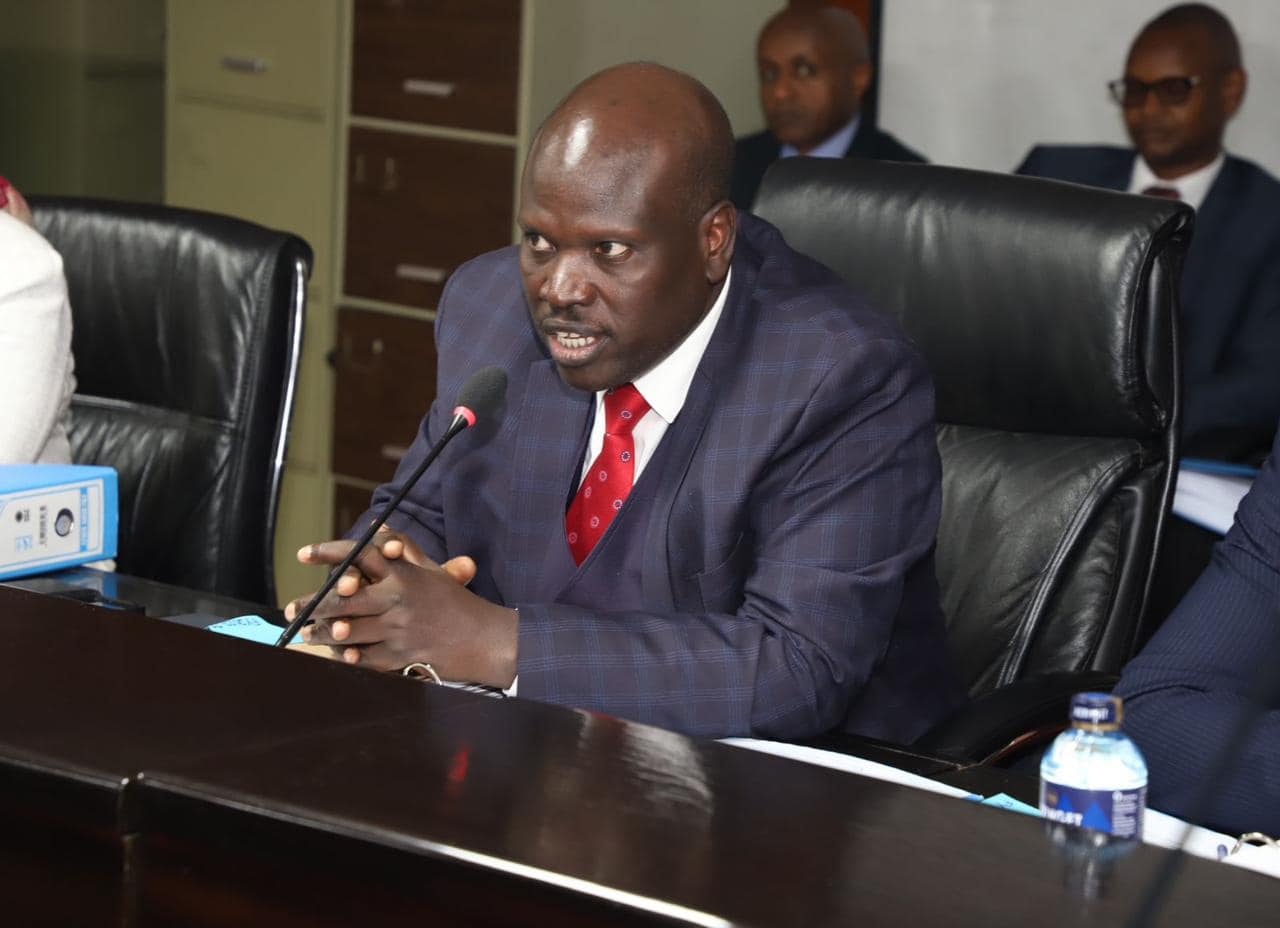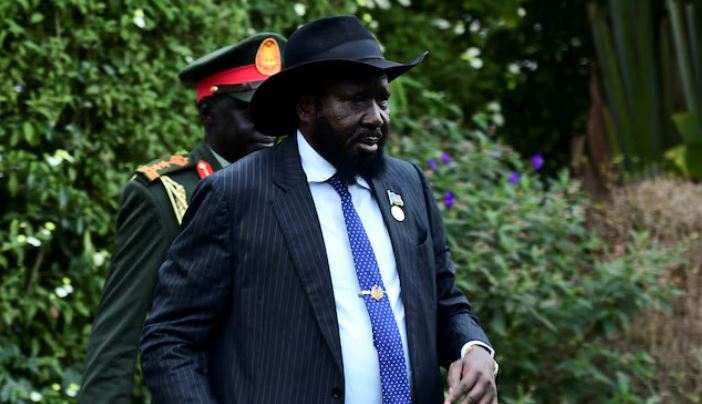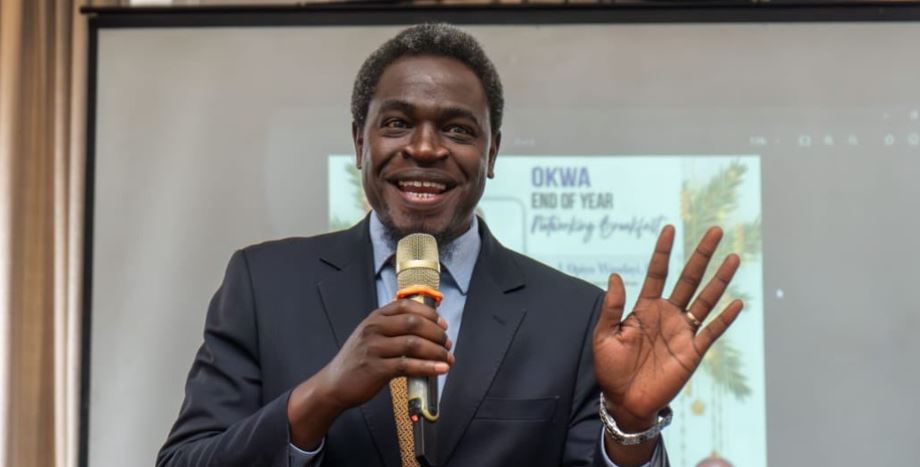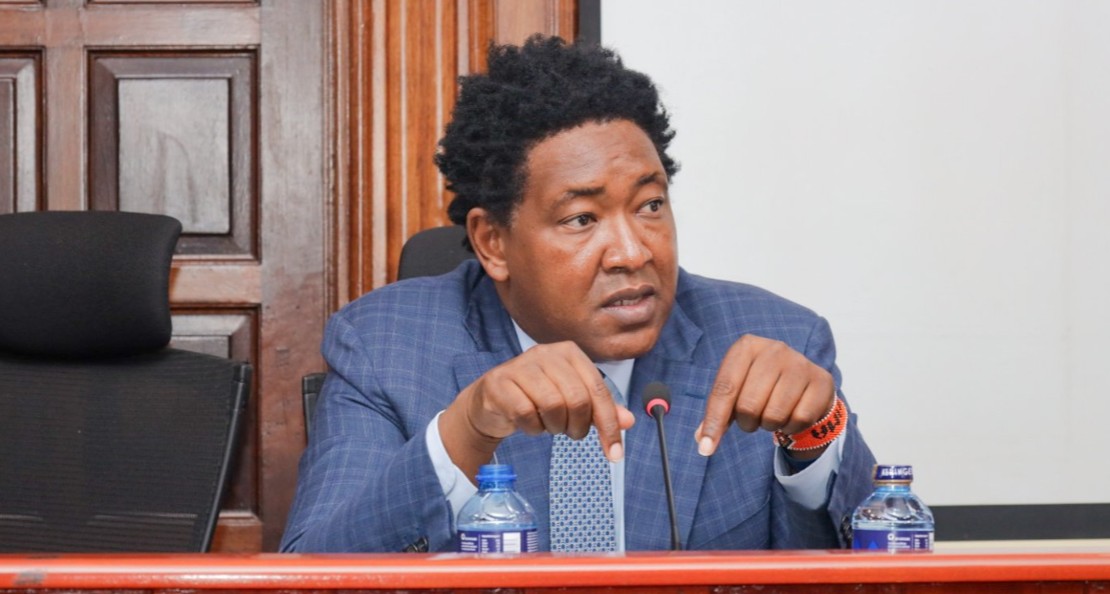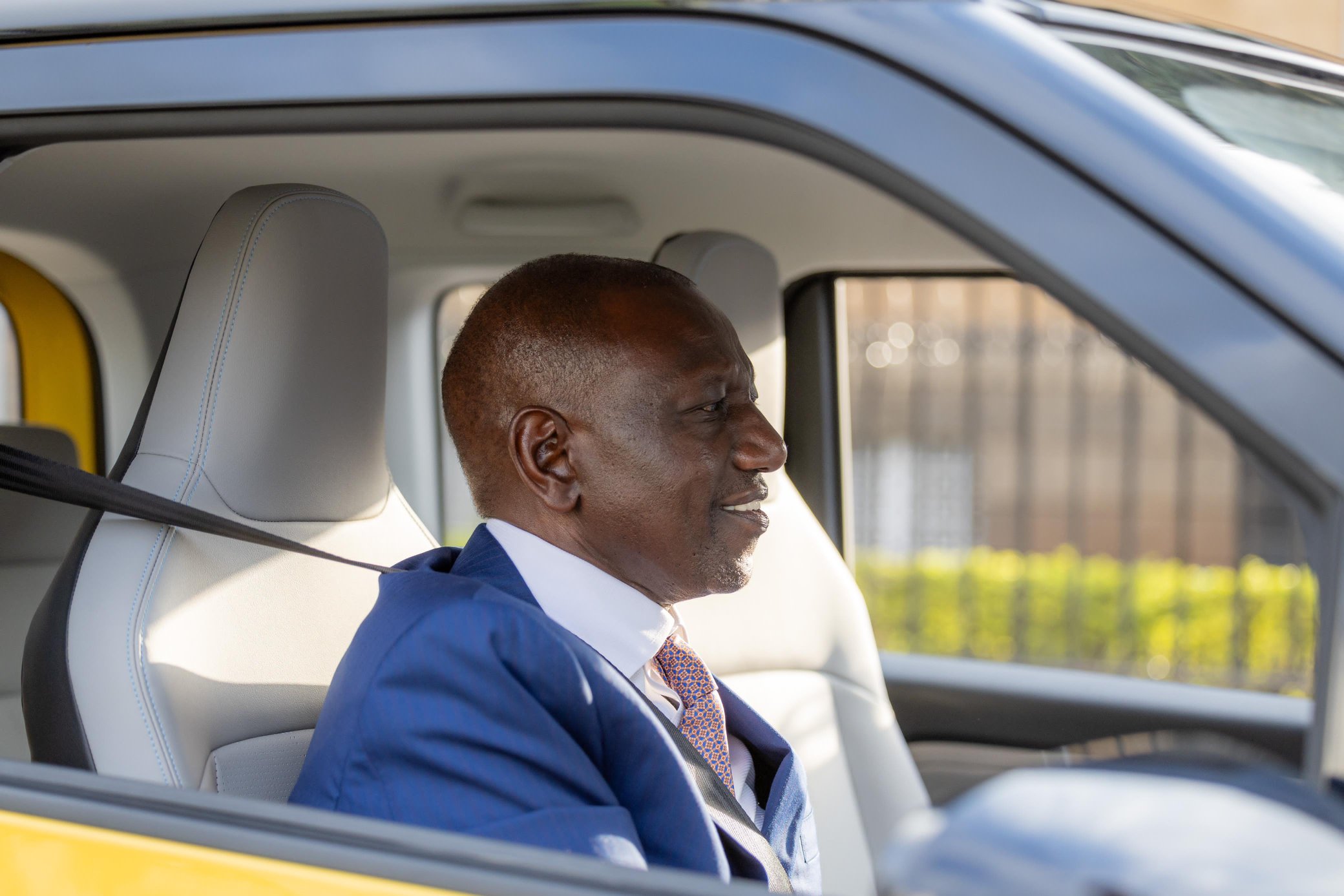Economist Fred Ogolla slams Ruto's economics, calls broad-based govt political gimmick
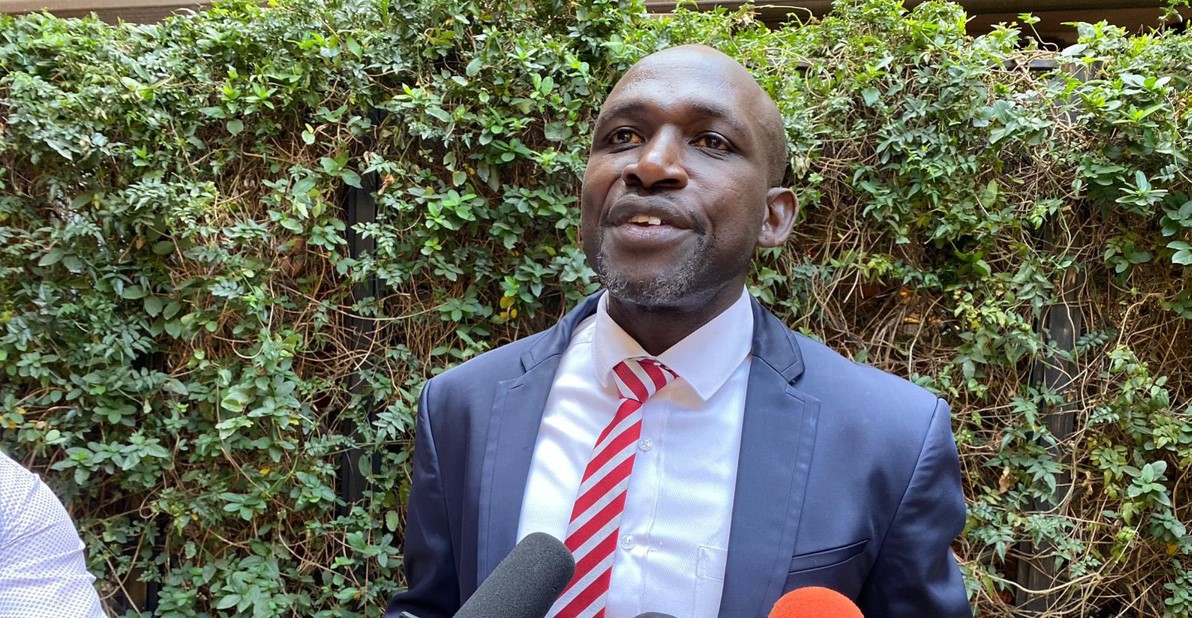
Broad-based government is a political solution to an economic problem. We cannot allow someone to give you a political solution to an economic problem.
Economist Fred Ogolla has been a thorn in the flesh of President William Ruto's administration. The scholar pokes holes in Ruto's economic policies, speaks about incompetence and wanton corruption in the Kenya Kwanza administration. The author of Solomonic Economics spoke to The Eastleigh Voice reporter, Barack Oduor, on why Ruto's government is getting it wrong in improving the economy.
***
More To Read
- Whistleblowers to get stronger protection, rewards under new bill
- Budget shortfall threatens Ruto’s Sh29.7 billion youth empowerment programme
- AG Dorcas Oduor seeks to cut graft trial timelines to six months
- President Ruto re-gazettes IEBC Chair Ethekon, six commissioners after court cites legal breach
- NDMA: 23 arid counties face water shortage, risk of drought-induced conflicts grows
- President Ruto becomes co-owner of Nairobi United, pledges Sh10 million
Q: As an economist and government critic, you have constantly been opposing the broad-based government arrangement. What are your reasons?
A: First of all, what was the Kenyan cohesion? The Kenyan cohesion was an economic one and not political. I don't think a broad-based government is the answer to the country's economic cohesion.
Broad-based government is a political solution to an economic problem. We cannot allow someone to give you a political solution to an economic problem. If you are sick, for instance with malaria, you take drugs meant for malaria and not those for any other disease.
After a broad-based government was formed, has the economic problem disappeared? No. The arrangement came when there was a revolt against Ruto's administration. After the formation of the broad-based government, there is still discontentment with the government.
I think the broad-based government has not solved the fundamentals, which were youth unemployment, corruption in the government, poor standards of living, a suffering education system, and the worsening healthcare system.
Generally, Kenya's biggest problem is overrepresentation, overcompensation, incompetence and corruption. Broad-based government has broadened all these ills.
Q: From an economic sense, how does your claim of overrepresentation make it difficult for the government to deliver on its pledges?
A: Overrepresentation is a big problem because we are now having so much money being spent on the political class. Currently, we are being represented by the Orange Democratic Movement party, the United Democratic Alliance and other smaller parties. So, the broad-based government is broadening the expenditure of the government and then burdening Kenyans.
Former Prime Minister Raila Odinga said previously that "punda amechoka", meaning that the donkey (beast of burden) is tired. After getting into the government, it is like he has increased the load on the proverbial donkey he once referred to as tired and needs to rest.
The people who went to the streets protesting that the government had made life unbearable are not the ones we see in the broad-based government. They were young people who were protesting against unemployment, hunger, improved healthcare and affordable education. Broad-based government has just succeeded in balkanizing Kenya into tribal lines.
Q: Do you believe President William Ruto is justified in creating the broad-based government arrangement for the sake of national unity?
A: I think the president has lied to Kenyans that we are not united. If there is anything that united Kenyans, then it was what happened on June 25, 2024. Every Kenyan rejected the Finance Bill, including those inside the government.
Every Kenyan supported Gen Z. Kenyans are not divided in any way. If you stick to addressing the economic problems, then there can never be division. Kenyans are united when they talk about the state of the economy, and are divided when talking about politics.
The politicians are pointing to Kenyans that we have a political problem that needs to be solved first before solving the economic problem.
Q: How, then, does the lack of economic commitment by Ruto's administration affect domestic and foreign investments in the country?
A: First of all, countries must have foreign policies. It is the domestic policies that define the national interests, and based on that, the fiscal policy is birthed to create the country's financial policy. Foreign policy is now ultimately the protector of the domestic policy and the financial policy of the country.
I believe Kenya has a foreign policy written somewhere, but Ruto is not following it. That is why you see a lot of goof-ups with this government. He threw away the foreign policy so that he could operate without one.
Because of this, he has placed people who are so incompetent in charge of the foreign affairs docket. You saw how Kenya lost the African Union Commission chairmanship contest because we do not have a foreign policy in the eyes of other countries.
For instance, America defines their own foreign policy. It will know how to engage with different countries as it has policies to deal with each. In our case, Ruto is the foreign policy, and everything goes according to him. In America, even the president cannot sidestep the country's foreign policy, but for us in Kenya, whatever the president says is the policy and law. This has made us lackthe consistency to engage.
How would you engage Kenya, if for instance rebels seeking to topple the legitimate government of a neighbouring country can engage it?
This has made other countries not to predict Kenya. Do you know the resultant effects? Market fears and uncertainty arise when other nations want to engage Kenya. Even investors will take off from such a country.
Q: How does an unstable policy affect the economic prosperity of a country like Kenya that is grappling with economic resuscitation misfortunes?
A: Since William Ruto became president with an unstable foreign policy, we have had an unstable tax policy, where you cannot know how much profit you can make if you invest in Kenya.
Foreign direct investment has gone down in Kenya but has increased in Tanzania, Ethiopia, and Rwanda. This is because investors do not know what to expect tomorrow.
When I read the front page of a leading daily newspaper in the country, there were the words "A lying president."
If you're going to a country where the media boldly refers to the president as lying and you want to invest. How would you put your money in this country?
Q: Don't you think there can be a debt audit to help the country establish the correct standing in terms of public debt as a journey to Kenya discovering its economic wellbeing?
A: First of all, that will be difficult in Kenya because there is something those in leadership did. When Uhuru Kenyatta was the president, there was something that was done by John Mbadi himself and other leaders who were in Parliament. You know that in the past before Kenya borrowed, it had to get clearance from Parliament.
The MPs drafted a Bill that allowed the president to borrow without consulting Parliament. When that happened, it made the Treasury able to go to any foreign country and bring money.
The control by Parliament previously ensured that you could only borrow money for development and not for recurrent purposes.
So, if somebody can borrow money without passing through Parliament and someone can also borrow money without us knowing whether the money sits in the Consolidated Fund or not, then when you want to begin auditing, you will have to rely on the information from the Treasury.
The Treasury is now being held by the president by controlling it directly. The president can today take money from the Consolidated Fund in the Treasury at his pleasure. Before, this was not allowed.
It will be very difficult to know how to audit these debts in the first case. Our national debt varies depending on the institution you inquire from. Parliament, Treasury and Executive all have different figures.
The question Kenyans should be asking is this: What exactly is our national debt? These conflicting numbers are not just mere errors.
Q: You have previously talked about odious debts. What is making it difficult to single this kind of debt out so that they can be traced to who borrowed them and for what reasons?
A: If you talk about odious debt, then you should understand its background. I agree with Busia Senator Okiya Omtatah that the debt in this country needs an audit and that we should not pay odious debt. This is where I slightly disagree with him.
The odious debt does not simply mean that some debt was not borrowed. The odious debt does not mean that it wasn’t approved by Parliament. It also includes debts that were borrowed but did not work in the interest of Kenyans.
So, odious debt is not just debt that was not spent by the country, but also money that has been borrowed to be spent against the citizens, because you cannot borrow money to fight your own citizens.
Top Stories Today
